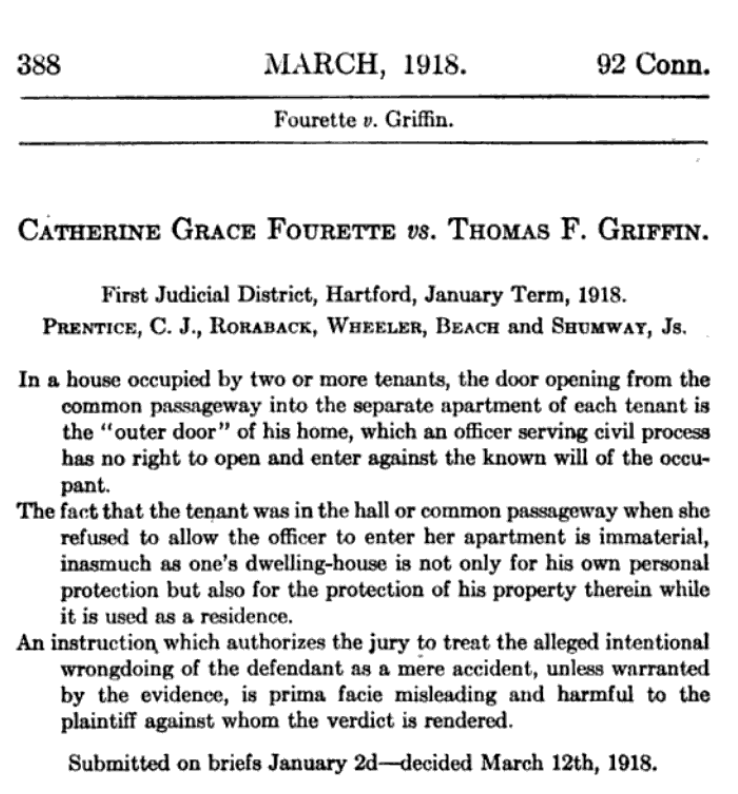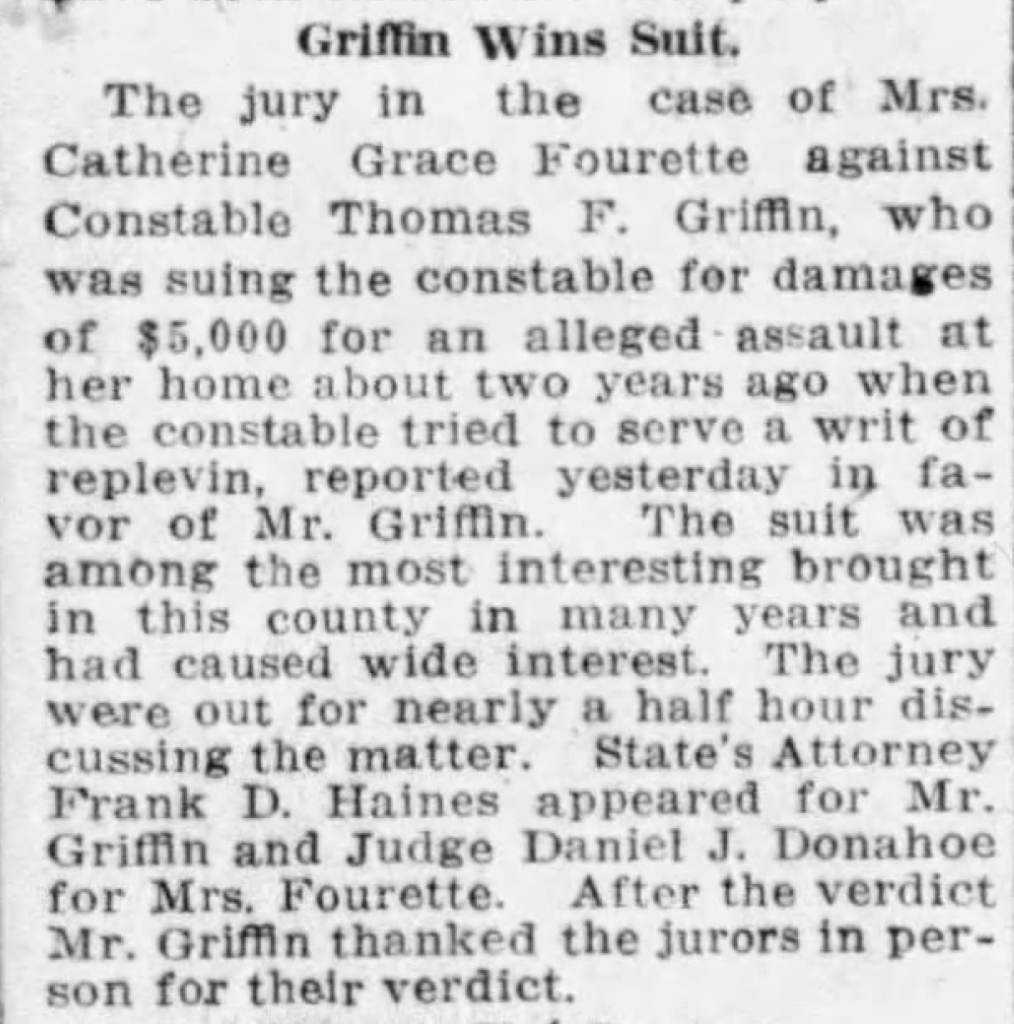Getting Away with Murder – A Case of Influence
My mother’s “Aunt Kittie,” Catherine Ruth Grace was born in 9 November 1889 in New Britain, Connecticut to William J. Grace and Mary Courtney Grace. Her siblings were: Joseph, Edward and Raymond (my grandfather). Catherine married Arthur Pearce Fourette in 1913 and they had two children together, Helen (b.1915) and Ruth (b. 1916), it does not appear they lived together after the birth of the children.
Helen died in her first year of life and Ruth died in 1923, at the age of six (cause unknown). The 1920 census shows Catherine working as a clerk at Travelers Insurance Company and living with her mother, younger brother (Raymond) and daughter Ruth.
This post centers on a tragic incident involving Thomas F. Griffith, an elected constable and political leader in Middlesex County (Hartford, CT), that resulted in the death of Catherine’s daughter Helen. The details of the incident are supported and illustrated by court records and newspaper stories.
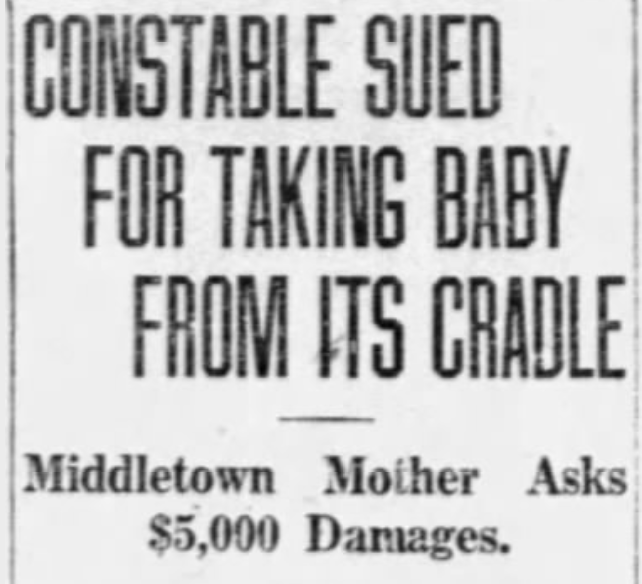
The Crime – On 13 March 1915, Thomas Griffin, an elected constable for Middletown, went to apartment of Catherine Fourette to serve court papers on her husband, Arthur, for the return of certain household furniture. Arthur was not living in the apartment at the time. According to news articles and court records, Griffin forced his way into the residence and in the process assaulted both Catherine and her infant, Helen. It is assumed that the injuries to mother and daughter led to the death of Helen. The actions of that day are described in an the below article “Judge Scores Constable” – The Journal (Meriden, Connecticut) · 13 Apr 1917.
The Case – Almost two years the death of Helen and with no criminal action taken against Griffin, Catherine filed a civil suit alleging trespass and assault and seeking $5,000 in damages. After a trial, the jury found in favor of Griffin after a very short deliberation. This verdict was successfully appealed by Catherine’s attorney, Daniel J. Donahoe, and a new trial was ordered based on a biased statement by the judge to the jury that Griffin’s breaking of the door (into the apartment) was “accidental and unintentional.” The appeal, Fourette v. Griffin, provides very interesting reading.
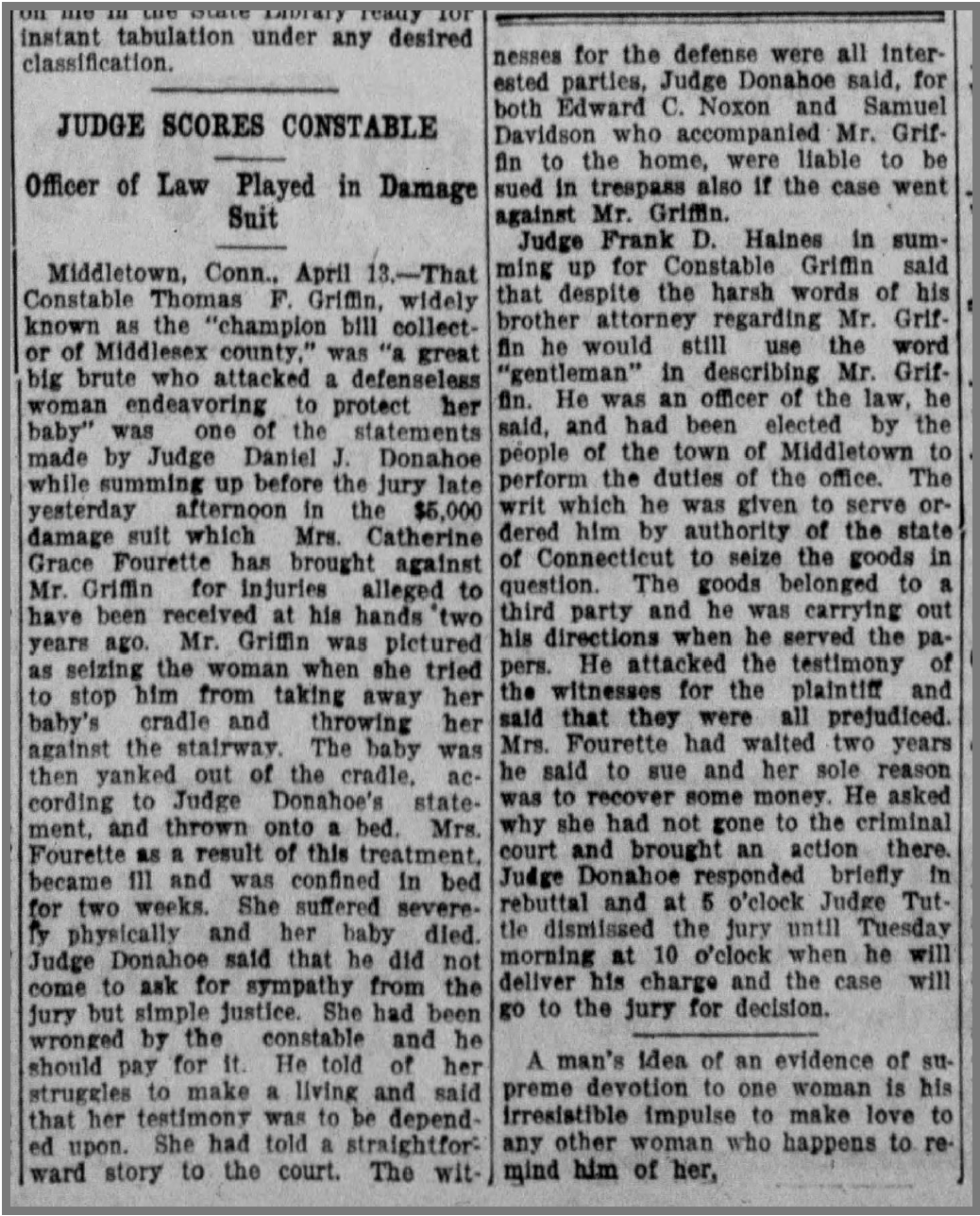
Sadly, this is were the story ends. I have been unable to find record of a second trial or the case being settled out of court. However, this case set precedent by viewing a shared entrance/passageway in a house, with multiple apartments, as being protected against unreasonable search and seizure, an officer had no right to enter the property. Below are quick vignettes on Thomas F. Griffin and Catherine’s attorney, Daniel J. Donahoe.
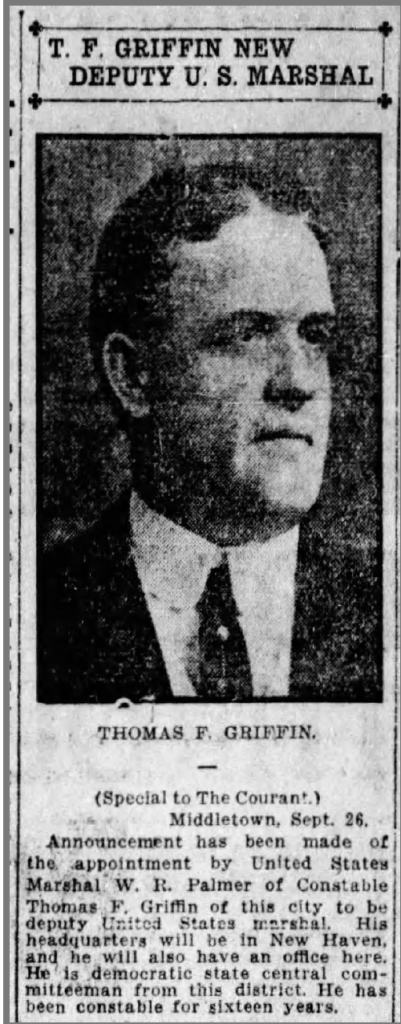
“A great big brute who attacked a defenseless woman endeavoring to protect her baby.” Daniel J. Donahoe
According to his obituary, Thomas F. Griffin (1870 – 1933) served as the elected town constable of Middletown, CT. for 27 years, was the Democratic town chairman and was also a member of the Democratic state committee. In 1920, he was appointed by President Woodrow Wilson to serve as a Deputy U.S. Marshall (article).
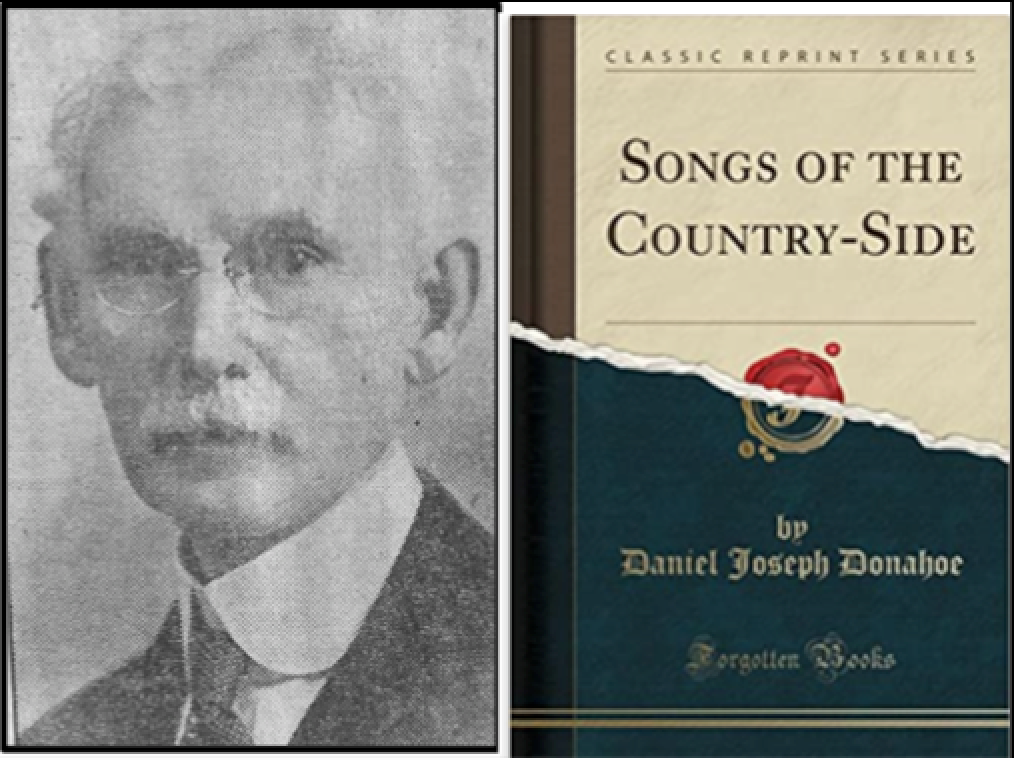
“Possessed of an indomitable will and ambition”
Catherine’s attorney, Daniel Joseph Donahoe (1853–1930), was very distinguished and respected. Donahue served as an Associate Judge (1887-1903) and Judge (1913-15) for the Middletown City Court. He was also the first lawyer to hold the office Public Defender for the Superior Court of Middlesex County. Donahoe was also a published poet. In 1914, Donahoe argued before the CT. Supreme Court on behalf of the plaintiff in ELIZABETH BROWN vs. THOMAS BROWN we held that a married woman could recover damages from her husband for an assault committed upon her by him.
Copyright © 2022. All Rights Reserved by David R. FrenchQuestions, Comments and Corrections are Appreciated
